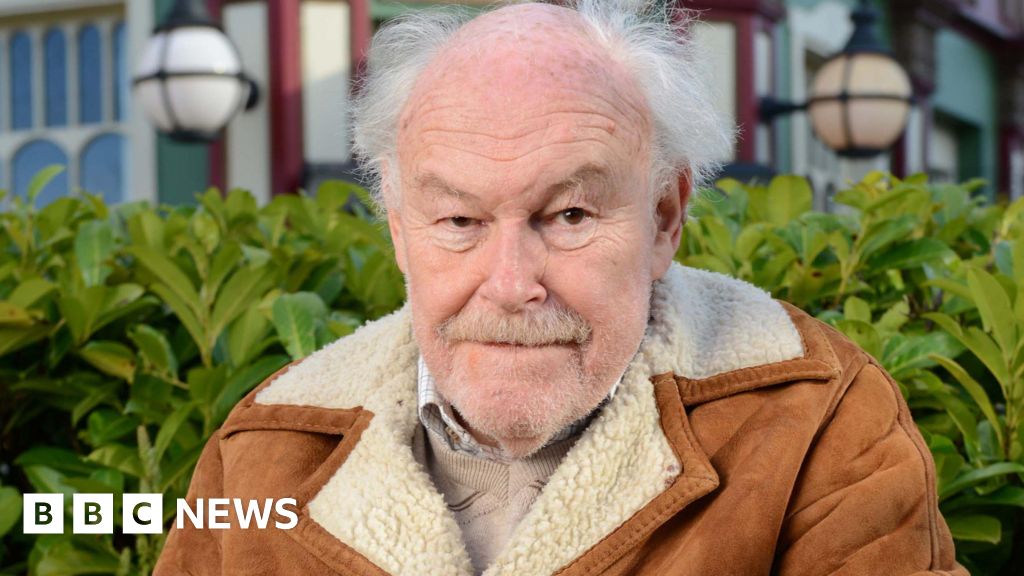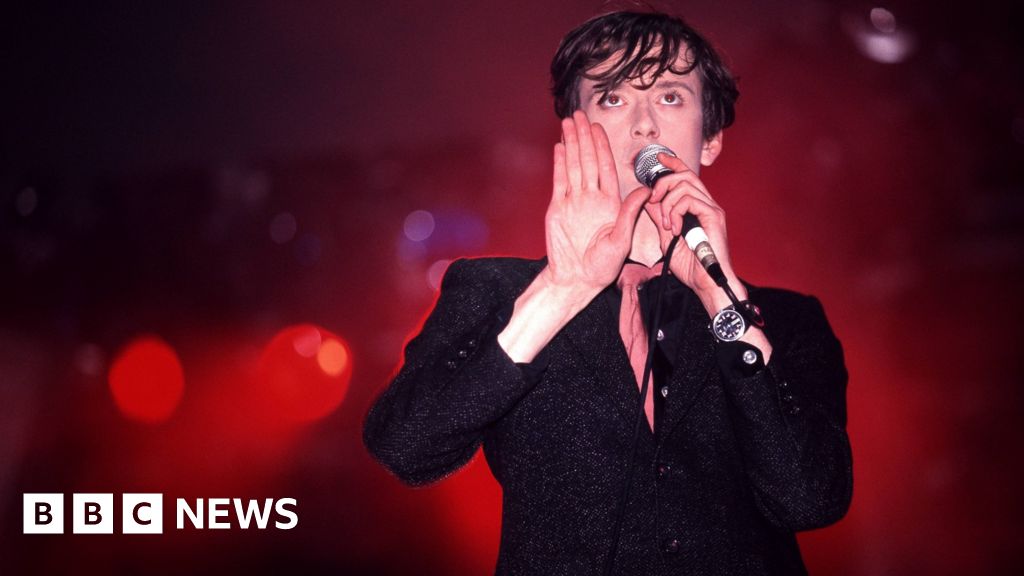ARTICLE AD BOX
By Ian Youngs
Entertainment & arts reporter
Image source, PA Media
Image caption,Ed Sheeran says the culture of copyright claims is "really damaging to the songwriting industry"
Ed Sheeran has warned that pop stars should not be allowed to be "easy targets" for copyright claims after winning his court battle with the writers of a song they claimed he had plagiarised.
A High Court judge ruled that the singer had not copied part of his hit, Shape of You, from Oh Why, by Sami Chokri.
That prompted Sheeran to declare on Instagram: "I hope that this ruling means in the future baseless claims like this can be avoided.
"This really does have to end."
The case was not the first time Sheeran has faced a copyright claim, and many other stars have also been involved in high-profile disputes in recent years.
Last month, Katy Perry won a case on appeal after a rapper said she had plagiarised an eight-note riff for her 2013 hit Dark Horse.
Dua Lipa has recently been sued twice over her song Levitating, the biggest-selling single in the US last year. Those claims have come from the writers behind Latin disco band Dr Buzzard's Original Savannah Band and Florida reggae group Artikal Sound System.
Also last month, Sam Smith and Normani were sued over their 2019 duet Dancing With A Stranger, while Taylor Swift is facing a trial over her 2014 anthem Shake It Off.
As the music industry saying goes, where there's a hit, there's a writ.
The field of music copyright "has become like the Wild West", says forensic musicologist Peter Oxendale, who worked with Sheeran in this latest case.
He says cases have proliferated since 2015, when Blurred Lines creators Robin Thicke and Pharrell Williams were found guilty in the US of copying the "feel" of Marvin Gaye's Got To Give It Up, rather than directly plagiarising musical phrases or lyrics.
"In that case, [there] wasn't even two notes in common, and yet it found in favour of the wrong side," Oxendale told BBC Radio 4's The World At One.
Part of the melody in Shape of You did bear some similarity to a segment of Oh Why - but Sheeran successfully argued in the High Court that it was a coincidence and he had not heard the other song before.
Watch Ed Sheeran's Shape of You and Sami Chokri's Oh Why
Sheeran took legal action after Switch - real name Sami Chokri - and fellow songwriter Ross O'Donoghue asked to be added to the songwriting credits for Shape of You, which is the most streamed song ever on Spotify.
However, the judge ruled that Sheeran would be justified in thinking their request "was a tactic designed to extract a settlement" - in other words, money and/or a credit without going to court.
Sheeran said: "I feel like claims like this are way too common now and have become a culture where a claim is made with the idea that a settlement will be cheaper than taking it to court, even if there's no basis for the claim.
"It's really damaging to the songwriting industry. There's only so many notes and very few chords used in pop music. Coincidence is bound to happen if 60,000 songs are being released every day on Spotify. That's 22 million songs a year, and there's only 12 notes that are available."
Sheeran's plea for an end to "baseless claims" will find sympathetic ears among other musicians.
"It should never have got as far as it did," Grammy-winning composer David Arnold wrote of the Sheeran case. "Hopefully this result brings about a change in the avalanche of frivolous speculative copyright infringement cases."
But Wednesday's ruling won't bring copyright cases to an end. It won't even bring cases against Ed Sheeran to an end.
He's facing another trial in the US after being sued for $100m (£76m) by the owner of a share of the songwriting rights to Marvin Gaye's Let's Get It On, who claims Sheeran copied it for his 2014 chart-topper Thinking Out Loud.
He has also settled cases out of court in the past.
In 2018, he paid $5.4m (£4.1m) to songwriters Thomas Leonard and Martin Harrington after being accused of copying their track Amazing (which was released by X Factor winner Matt Cardle in 2012) for Sheeran's 2015 song, Photograph.
In the latest trial, the star said he had been "bruised" by that experience. Even though he felt he had done nothing wrong, he said he had agreed to pay out on the advice of his lawyers because it would have been a "nuisance" and "more trouble than it was worth" to fight.
Image source, Getty Images
Image caption,The writers of TLC's No Scrubs have a credit on Shape of You
After the Shape of You ruling, Oxendale said: "I'm full of admiration for Ed Sheeran in this case because he could easily have taken the easy way out, which is just to give them a nuisance payment to go away.
"But he didn't. He chose to fight it and fighting cases in the High Court is traumatic for anyone. It's difficult. It's really expensive. It's time-consuming."
Sheeran had already given the writers of TLC's 1999 hit No Scrubs a credit on Shape of You several years ago after similarities were pointed out.
In recent years, more stars have given the composers of potentially problematic tracks credits before a dispute gets anywhere near a court.
Taylor Swift famously credited 1990s British pop duo Right Said Fred on her 2017 single Look What You Made Me Do because it follows the same rhythmic pattern as I'm Too Sexy.
Last year, Olivia Rodrigo added two members of Paramore to the writing credits of Good 4 U, and the number of writers on Uptown Funk, by Mark Ronson and Bruno Mars, ballooned from six to 11 when The Gap Band noticed similarities to their song Oops Upside Your Head.
Part of Chokri and O'Donoghue's complaint was that Sheeran treats unknown songwriters worse than famous ones when it comes to giving credits - which he denied.
But the case rested on the fact that he insisted he had never heard their song, which would have been more difficult to argue if Oh Why had been a hit.
Image source, Julia Quenzler
Image caption,Sheeran gave evidence at the High Court trial last month
Copyright lawyer Kate Swaine says: "If I was advising somebody who's been accused of copyright infringement, the first thing I would ask them is, 'Is there a possibility that you could have, unconsciously or consciously, been influenced, inspired or taken an element of this?'
"If somebody turns around and says, 'I do know that track really well. I have heard it. It's not out of the question,' they may feel that, rather than getting into the cost and disruption of a court action, it is easier to make a concession and therefore give some credit on the royalties.
"Here, what comes across from Sheeran's evidence is he was absolutely adamant that he had not heard this track."
She sees little chance of the number of copyright claims subsiding.
But she says that despite the Blurred Lines ruling, "the law seems to be doing a reasonably decent job" of assessing when there is sufficient evidence of copyright infringement, and when there is not.

 3 years ago
59
3 years ago
59








 English (US) ·
English (US) ·